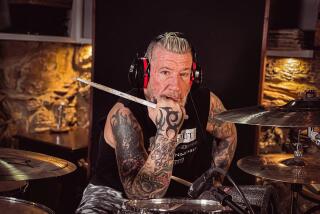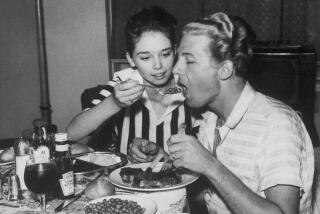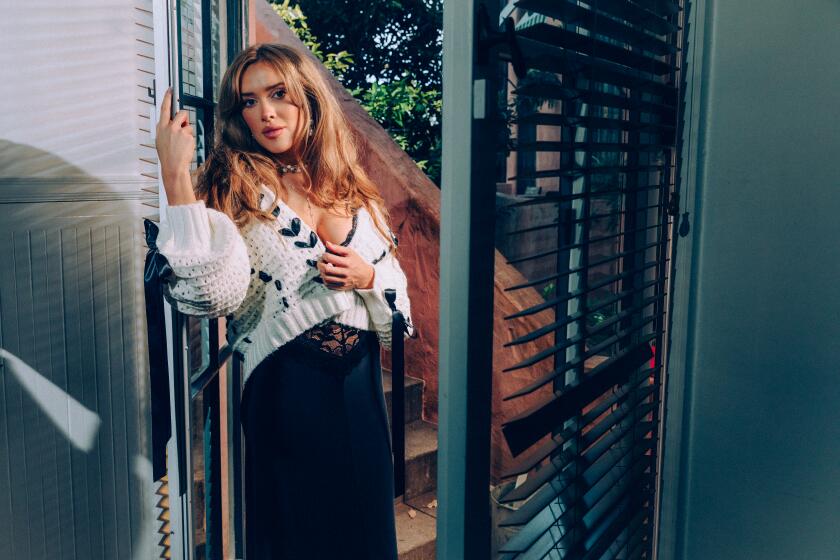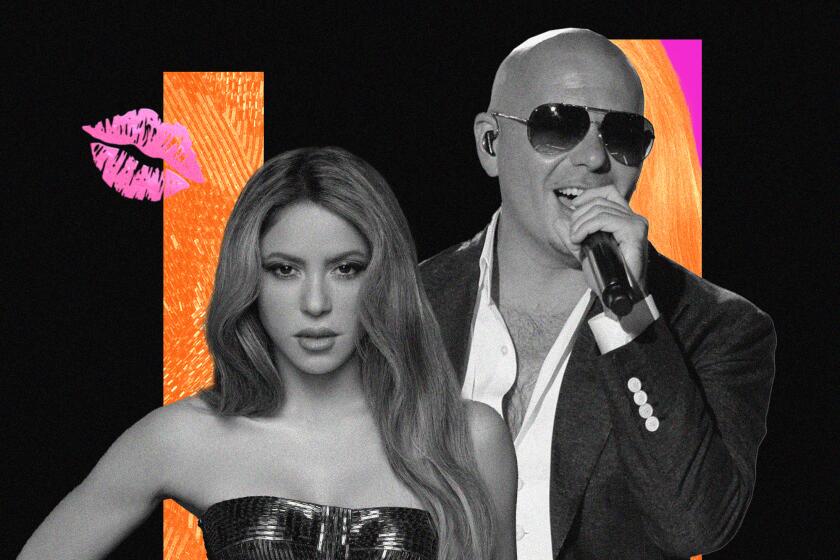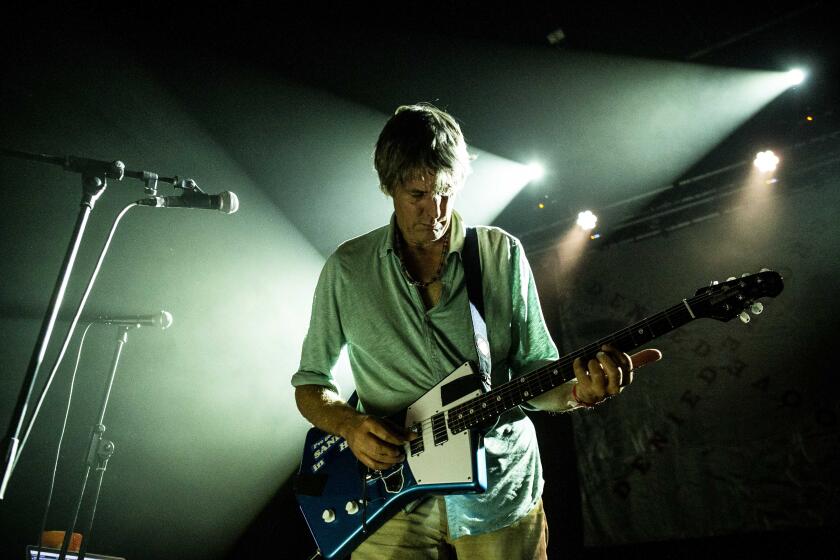OVER EAZY : In Retrospect, the Late Gangsta Rapper Seems More Significant Than He Did a Few Weeks Ago.
Tt surprises me a little, a few weeks after his sudden death from complications of AIDS, how much time I have spent thinking about the Compton rapper Eazy-E and how intertwined Eazy’s career was with the complicated feelings that many of us have about Los Angeles.
There was a lot not to like about Eazy. He suddenly and almost single-handedly escalated the level of violence in rap lyrics, and his production company, Ruthless Records, more or less subsidized the first few generations of what became came know as gangsta rap. His last couple of albums, though million-selling, were lazy and mean. He seemed to take pride in personifying the cop-killing, bank-robbing, car-jacking midnight fears of America, and the more the mainstream culture reviled his violent, sexist brand of guerrilla theater, the more empowered he became. To the end, nobody but his closest friends knew if he really was a vicious thug or whether he just played one on TV.
For the record:
12:00 a.m. June 4, 1995 FOR THE RECORD
Los Angeles Times Sunday June 4, 1995 Home Edition Los Angeles Times Magazine Page 2 Times Magazine Desk 1 inches; 32 words Type of Material: Correction
In “Over Eazy” (On the Town, May 7), Jonathan Gold’s reference to the line being blurred between artist and felon should have compared the late rapper Eazy-E to the French felon-author of the ‘40s, Jean Genet, instead of Andre Gide.
In the summer of ‘87, it was impossible to go anywhere in South-Central L.A. without hearing the insistent three-note phrase that punctuated his first recorded song, “Boyz-N-tha-Hood,” tinny as a melody from an ice-cream truck, as readily carried on the breeze. A lot of sociologists and news crews had attempted to define the culture of the L.A. gangster to the outside world, but with this single, it seemed as though the gangsters were talking to each other and the result was astonishingly fresh. Eazy’s charm was that he came across as the hoodlum next door, the Jheri-curled nihilist who’d succeeded on his own terms, had more women than he could count and more guns than he could ever shoot, and was famous around the world.
Rap, after all, has always been less about aesthetics than about power, often translatable into cold, hard cash, and Eazy was as much a romantic antihero as the characters Johnny Depp always ends up playing.
I was, I’m pretty sure, the first journalist to talk to Eazy, but even then he put on a show of jadedness of the sort you might have expected from a media-wary politician. He answered some questions in monosyllabic grunts and narrowed his eyes at others. If a question was too pointed, he said, “I take the Fifth,” as though he was testifying before a Senate subcommittee instead of being interviewed for a small piece in a fashion magazine. When I probed a little too closely toward something that seemed to involve his personal life, his lieutenant, who later became famous as N.W.A’s MC Ren--glared dangerously. Eazy’s was a nuanced performance, perfectly realized from a lifetime of watching reporters talk to criminals on TV, and I was reminded of it a few months ago when Long Island Railroad killer Colin Ferguson took the stand in his own behalf.
“I’ve got lots of guns,” Eazy said. “I’ve got Uzis, stuff with the laser scope on it, a 9-millimeter, semiautomatics. I’m trying to get hold of some hand grenades, too, just to have ‘em. At the Beverly Hills Gun Club, I met some police who were shooting at the special targets they have. One cop asked if he could try my 9. The guy shot-- bow-bow-bow-bow --and he did pretty good with my gun. Then he gave me one of his targets, and said ‘Go for it.’ I did a lot better than him. He asked if I’d ever taken any classes. And I said, ‘No, I just grew up in Compton.’ ”
Eazy was that strange creature, a natural. He instinctively understood the stance of the rebel outlaw and played the part with perfect pitch: Eazy was among the most successful young entrepeneurs in the music industry, with a track record that the young David Geffen might have envied. But the rapper affected (in front of reporters, anyway) the imperious air of a crime lord. Early on, he insinuated that the seed money for his company came from a teen-age stint as a cocaine wholesaler, though his manager dismissed that particular myth with a snort.
Eazy couldn’t lay down a beat or write a rhyme to save his life, and his rap skills were at best rudimentary. But he had an uncanny ability to make somebody listening to his records believe that he was who he claimed to be, that he relished the sure knowledge that the life of a gangsta was nasty, brutish and short. Not since the Parisian rage for felon/author Andre Gide in the 1930s has blurring of the line between artist and felon, between listening to a record and sitting in the studio making a record, been as complete.
More to Read
The biggest entertainment stories
Get our big stories about Hollywood, film, television, music, arts, culture and more right in your inbox as soon as they publish.
You may occasionally receive promotional content from the Los Angeles Times.
